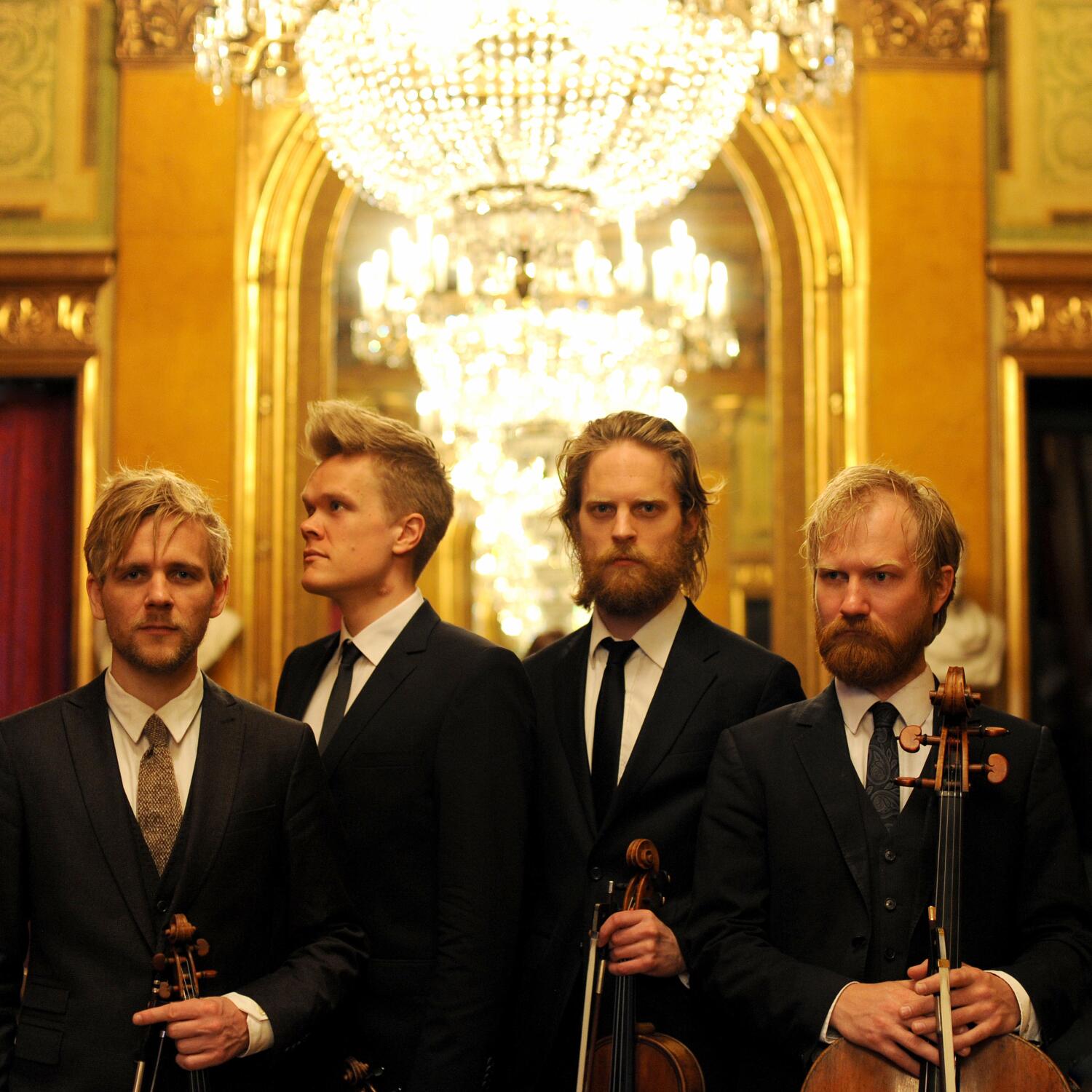
The cello was large and curvy. Like a human passenger, it needed its own seat on the airplane. Unlike a human passenger, the cello did not have a passport or visa for international travel. And the cello was not allowed on the plane.
The cello’s owner, Fredrik Schøyen Sjölin, a member of the Danish String Quartet, remained behind with his instrument while the rest of the group flew from Copenhagen to San Francisco. It would take Sjölin more than six hours and a personal escort through security before he and his cello could get on a flight routed through Chicago to join his friends in California at midnight.
It was the day before the start of a U.S. tour that had been canceled six times because of COVID-19 shutdowns. And the trouble with the cello was just the latest in a string of bureaucratic barriers overseas performers are encountering as they attempt to tour the States.
“This tour almost felt doomed,” said violinist Frederik Øland, whose quartet plays Santa Barbara on Thursday, Seattle on Friday and the Broad Stage on Saturday — the Santa Monica venue’s return to live, in-person performances after almost two years of pandemic closure.
The Danish String Quartet’s difficulties began mounting in June when the group tried to make appointments with the U.S. Embassy in Copenhagen for the interviews needed to obtain their visas. These interviews, said viola player Asbjørn Nørgaard, are extremely straightforward but must be conducted in person. The quartet has toured the U.S. many times and never had trouble obtaining the necessary P1 visas granted to entertainers.
But things have changed during the pandemic.
“There’s a huge backlog in the global visa system to get to the U.S., and the next available appointment in Copenhagen wasn’t until November,” Nørgaard said. The tour was to start in October.
But it was still early summer, and the musicians figured they had time to sort out the visas. The quartet’s management team hired an immigration lawyer to speed the process.
“At one point, there was talk about us going to Poland because there were some available interviews. There was also talk about us going to the Dominican Republic and staying one week to get the visa there,” Nørgaard said. “We almost gave up, but suddenly there was an opening in Frankfurt, Germany.”
The men ended up taking three different flights to Frankfurt for their appointments — with only a little more than a week to spare before their departure. The men needed to leave their passports in Germany because when the visas were approved, they were to be affixed to the inside pages.
Passports are not required for travel within the European Union, so the musicians could return home to Denmark, but there was another catch: The passports (with visas attached) could be mailed only to an address inside of Germany.
The group ended up having the passports sent to an affiliate of their management’s lawyers in Berlin. The last two passports arrived on the afternoon of Oct. 7. A helper flew from Berlin to Copenhagen with all four passports the following morning because there was little faith in a courier service delivering the passports in time for a Saturday morning flight.
“It all worked out in the end so we were quite happy about that,” said violinist Rune Tonsgaard Sørensen, adding that he hopes the pandemic winds down soon — and with it the related travel woes. “Because we do love traveling in the U.S. We come three or four times a year on a tour, and it feels like our home court.”
The Grammy-nominated quartet has already made quite an impression in Southern California. After a 2014 concert in Santa Barbara at which they performed Beethoven’s C-Sharp Minor string quartet, Times classical music critic Mark Swed called the players “marvelous” and wrote, “Their command of the quartet’s challenging arch-shape formal structure was complete. They could be grounded in their tone or mystical. They allowed time to stand still, and they could assume the pose of excitingly aggressive rockers. They did it all.”
Three of the group’s four members met as schoolboys at a summer camp for aspiring musicians and have been playing together since. The fourth member, the cellist Sjölin, who is the sole Norwegian in the mix, joined in 2008.
The quartet is known for its flexibility, including a mastery of chamber music by Beethoven and Mozart as well as a firm grasp of folk music.
The touch-and-go journey to be here has made performing all the sweeter, the men said.
“It was incredible sitting on the stage,” Øland said of the tour’s first stop at UC Berkeley. “Finally being back here after two years is wonderful.”
After the Berkeley show, he added, he almost tripped on a microphone cable as he was walking offstage. Nothing will be easy this time around.
For all the latest Entertainment News Click Here
For the latest news and updates, follow us on Google News.
